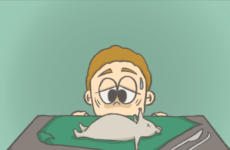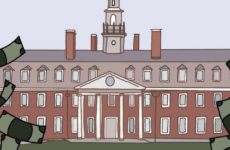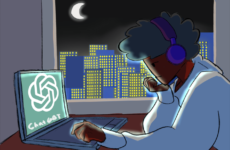My parents have always been highly conscious of the rapid pace at which the world changes. In 2000, my father read a news article about the extinction of the Pyrenean ibex, a subspecies of the Iberian wild goat, once found throughout the Andorran Pyrenees. At that time, my brother had not yet been born, but my parents had already decided that they would make sure their children saw the natural phenomena and wonder of America — glaciers, endangered flora, volcanic craters — before it disappeared, or became so isolated that to experience them would require a long-term pilgrimage.
As far back as I can remember, I have visited no less than one national park, protected area, or wilderness zone a year, usually during the summer. The significance of these trips and adventures has never laid in the collection of collectibles or the pictures taken, but in the stories that we have accrued to recount to each other.
I’ve come to look forward to these trips with my family, more than a vacation on a Mediterranean cruise or tours through some megalopolis.
But let me be clear: I don’t have a grudge against cities or anything. I’ve found some of my favorite ramen shops in Manhattan and I’ve spent great afternoons biking around Portland and Shanghai. Yet, when I’m out camping or hiking and visiting places like the national parks, my system slows down. I spend more time sitting and observing — really observing — rather than just doing. Without the distractions of cell phone vibrations or traffic signals, it becomes easier to look and see the beauty all around you.
I’ll admit, too, that I enjoy the primitive anxiety that can be found only when isolated in the wild. While camping along the Appalachian Trail, before we knew how to properly store our food, my brother and I heard countless noises as raccoons scratched at our food supplies or clawed at our tent.
During our trip to Everglades National Park, we spent hours staring out into the marshes, hoping to see signs of an American alligator or crocodile but only sighting egrets and herons. When we finally turned to leave, my brother screamed and pointed into the reeds, revealing an alligator, a leviathan lying parallel to the boardwalk, resting on a rock between the reeds. It squinted at us as if gauging whether we were worth the effort. Its tail swayed on the water, its jaw stretched open, but it remained still, watching us with cold eyes. There are few thrills that quite match the shiver down the spine I felt then, knowing with sincerity that I do not stand atop the food chain. It wakes you up, in a different way.
Backcountry also has a side effect of sharpening the connections between the people you choose to surround yourself with. Over the years, these trips have built the bedrock on which my relationship with my brother is built. We don’t necessarily speak more on these trips, but it seems that the mix of experiences naturally forms a flexible glue that holds us together.
Off the Golden Ring in Iceland, where the weather was below-freezing more than not, we trekked with only GPS coordinates through rain and mud to reach Brúarfoss. I saw with fresh eyes how water could fall into itself, the small waterfalls running into a deep chasm of blue raspberry. My brother fell into the water and pulled my father and me with him. Our boots and coats were marinated in the deep blue water the next morning.
These destinations may not be easy to get to, but the colors seem to be more vivid if you’ve hiked through the pouring rain to get to them.
There may be many aspects of the world that I am unhappy about these days, but the one thing that I have always appreciated is the ease with which I could vanish into the wilderness With the noise and clamor that we soak in every day, this kind of remoteness is now more precious and fragile than ever. Deep in the wilderness of national parks, I can surrender myself to the absolute indifference of nature. Out there, where there is nothing, we fill up the emptiness with experiences and stories.




